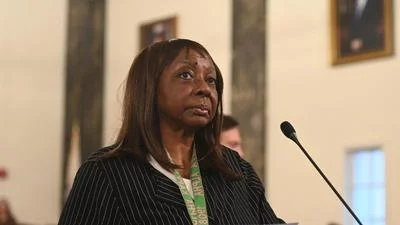Wrigley Field sees more than 3 million fans annually to cheer on the Cubs. | File
Wrigley Field sees more than 3 million fans annually to cheer on the Cubs. | File
The cry of “Play ball,” may not be heard at Wrigley or Comiskey Field this year with Gov. J.B. Pritzker leaning toward prohibiting Major League Baseball in Illinois.
Sources tell Chicago City Wire that the governor may order no MLB games in Illinois this year because of concerns about the coronavirus pandemic. If so, that would drain tens of millions of dollars from the Chicagoland economy.
In March, Pritzker said no professional games in any sport should be played in Chicago until May 1, at the earliest, at least not in front of fans. Now, almost a month after the 2020 MLB season was to open, Pritzker is considering calling baseball out all summer and fall.
MLB has discussed starting the season with all games played in Arizona, Texas and Florida. Teams hold spring training in Arizona and Florida before heading to their home cities.
Cubs first baseman Anthony Rizzo said he is doubtful players would agree to be away from their homes and families for such an extended period.
“I think you’re going to have a hard time telling grown men with established lives to stay in a hotel and not be with their families,” Rizzo told The Athletic. “You’re going to tell Kris Bryant that he’s not going to see his baby (born April 7) for 4 1/2 months?”
The season was suspended due to concerns about large groups packed together to watch teams play. In 2019, MLB games drew more than 4.6 million people to Chicago ballparks, with the Cubs drawing more than 3 million fans over 81 games—an average of 38,208 per game. The White Sox drew more than 1.6 million for 80 home games, or 20,622 fans per contest.
Skeptics said they think the concern over COVID-19 is overstated. It has been caused 1,468 deaths in Illinois this year, according to the Illinois Department of Public Health.
At the same time, influenza kills a similar number of people each year, according to the IDPH.
“Over the past decade, influenza and pneumonia have been associated with an average of 3,500 deaths a year in Illinois,” it reports on its website. “Since 1992, the highest number of flu and pneumonia deaths was the 4,021 recorded in 1993.”
Calling off baseball in Chicago will take a huge bite out of the economy. The Cubs generate an estimated $789 million in spending annually.
A report on the economic impact on a renovation of Wrigley Field, the Cubs’ beloved ballpark, prepared for the U.S. Conference of Mayors, said it would be a windfall for the city. The project calls for $500 million — none of it from taxpayers — to be invested over five years, $300 million on the stadium and $200 million on the surrounding area, known as “Wrigleyville.”
That would, according to the report, generate $94 million annually in new indirect and induced spending and 57 million in annual net new direct spending. It would create 2,100 new jobs, 1,300 of them permanent.
Baseball has been disrupted before. The 1918 season was cut short by about a month, ending on Sept. 2. The World Series was played, however, with the Boston Red Sox defeating the Cubs four games to two.
Strikes and labor issues disrupted baseball in 1972, 1981 and 1985, with two months of the season lost in 1981. The longest-lasting stoppage was in 1994-95, when the owners sought to impose a salary cap and the players walked out.
It cut short the 1994 season and did something that world wars and terrorist attacks couldn’t — cancel the World Series. The 1995 season was shortened but played out to the end and a concluding World Series.
The White Sox ended a long title drought by winning the 2005 Fall Classic and the Cubs eased the pain of long-suffering fans by winning it all in 2017. But with the looming possibility of no baseball in the Windy City, fans might be without the Summer Game and fall dreams this year.






 Alerts Sign-up
Alerts Sign-up